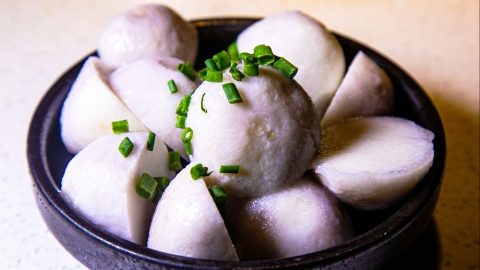Can patients with rectal cancer eat taro?
Rectal cancer patients can usually eat taro, which is nutritious and easy to digest, making it suitable as part of their daily diet. However, the method and amount of consumption should be adjusted according to the stage of the disease, and caution is advised during acute phases or when digestive function is weak. Detailed analysis is as follows:

When the condition is stable and digestive function is normal, taro is an excellent food choice. Taro is rich in dietary fiber, B vitamins, and minerals such as potassium and magnesium. The dietary fiber promotes intestinal motility and helps relieve constipation, a common issue during postoperative recovery or treatment. The mucilaginous protein in taro provides additional nutrition, and its soft, tender texture causes minimal irritation to the intestines, making it suitable for patients.
During acute phases or when digestion is impaired, taro consumption should be controlled. In the early postoperative period, or when gastrointestinal mucosa is damaged due to chemotherapy or radiation—especially if symptoms such as bloating or diarrhea occur—excessive intake of taro may increase gastrointestinal burden and lead to discomfort. If consumed at this time, taro should be thoroughly cooked until very soft, mashed into a puree, and taken in small amounts. Raw or undercooked taro should be avoided.
Daily meals should emphasize balanced nutrition. In addition to taro, patients should consume adequate high-quality protein and fresh fruits and vegetables. Cooking methods should primarily include steaming, boiling, and stewing, while spicy, irritating, and greasy foods should be avoided.









